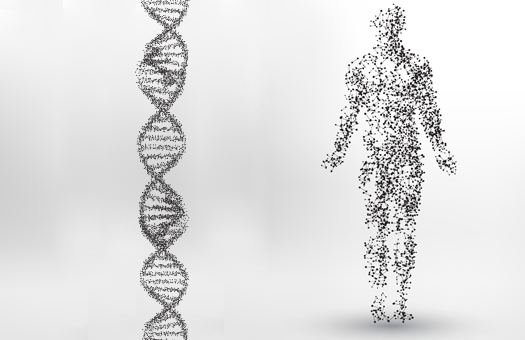Studies show that heavy metals, in low quantities in the body though cannot cause poisoning, but can damage the body in many ways. The heavy metals will disturb the function of minerals in the body. These minerals can accelerate the function of various systems in the body, such as producing energy, using nutrients to produce hormones and halting the working systems of the body. However, heavy metal substances can be harmful to cell walls. They will cause an electric charge that disrupts the balance and destroys the cell walls. The cells within can also be destroyed or cause abnormal cell division.

Furthermore, heavy metals are also agents that cause free radicals and inflammation to the blood vessels. The artery wall will become rough with unsmooth surface, causing atherosclerosis, plaque and thrombosis as shown in a large number of research studies. The heavy metal substance also affects the mechanism in the production of nitric oxide in blood vessels. The blood vessels will lack of elasticity and contract, which will become a risk factor of vascular stenosis and decrease the capability of sending nutrients to other organs of the body. When that happens, the body organs will continuously degenerate and can cause illnesses like Alzheimer’s, Parkinson’s, autism, cardiovascular disease, diabetes, high blood pressure, kidney degeneration, eye degeneration and other chronic diseases.
The heavy metal substances that are accumulated in the adrenal gland will make the adrenal gland produce fewer hormones and cause adrenal fatigue, which will quickly degenerate the body and cause high stress. Likewise, in the endocrine gland, if there is an accumulation of heavy metals, the production of hormones will reduce. The accumulated heavy metal substances can cause diabetic patients to respond less to the anti-hyperglycemic agent. It can also lead to degeneration in the nervous system, which in turn can affect things like moods, memory, bone density and thyroid function. The toxicity of the heavy metal depends on the chemical form of each type of heavy metal and the route into the body (respiratory system, gastrointestinal system or skin). When these toxins accumulate in the body to a certain degree, symptoms will show. Heavy metals toxicity in living things comes from various mechanisms and they are as follows:
-
The heavy metal seizes the function of essential minerals. Normally, there are about 70 types of trace minerals that our body needs. The function of most essential minerals is related to function of enzymes. The enzyme is a type of molecule in the body that acts as the propeller of the chemical reactions. For example: The enzyme in the energy production process will transform the digested or absorbed nutrients into energy. The enzyme in the toxin and free radical degeneration process, such as Zinc (Zn), will complement the enzyme to degenerate the toxins just like Alcohol dehydrogenase, which helps to degenerate alcohol. Therefore, if the body has heavy metals, alcohol will slowly degenerate and alcohol intoxication will occur faster which in turn increases the chance of having cancer or cirrhosis.
-
Heavy metals increase the production of free radicals through a chemical reaction. Free radicals are unstable molecules, which are produced from the function of cells in the body, like carbon from the combustion of an engine. When these foreign toxins are produced, the body will try to take control by relying on the enzyme to degenerate these free radicals. Having too many free radicals will be harmful to the cell wall and the main structure of the genes which may cause damage or cancer. However, when there are heavy metals remaining, chemical reactions will cause more free radicals (process called Fenton Reaction). For example, when the oxygen reacts with the heavy metal, it will cause free radicals immediately. Likewise, Vitamin C, which is considered an anti-oxidant, will produce more free radicals when the body has heavy metals which in turn can cause damage.
-
Heavy metals reduce the level of natural anti-oxidants that the body synthesizes. Most heavy metals can attach themselves to important components of the molecules like anti-oxidants produced by the body. An example is, heavy metal attaching themselves to the Thiol group in glutathione, which is a very important anti-oxidant that helps to protect our body. When that happens, the substance will malfunction. The body will be at risk of being under threat by the free radicals, which will attack the fat and cause lipid peroxidation. Since all cell walls are fat, they can be damaged. Also, the free radicals will cause protein dysfunction. All hormones in the body are often protein or a string of amino acids. So, the function of hormones will also be destroyed. Peptide or sub-protein, the molecules that give commands for communications between cells, can also be attacked. The free radicals can destroy DNA, causing cell mutation, which is the starting point of degenerative cells and carcinogens. Insulin is also a hormone that can be damaged by heavy metals. Many previous research studies have reported that after the use of chelation therapy, diabetic patients could control their sugar levels better with less drug use.

-
Heavy metals are poisonous to cell walls. The cell walls will lose their strength and the cells will be easily damaged. For example: Lead will cause the red blood cells to become brittle and fragile. As such, one of the symptoms from lead poison is anemia because the red blood cells are broken.
-
Heavy metal residue on the vascular wall restrains the production of the active ingredients that naturally relaxes the blood vessels, such as Nitric Oxide. As a result, this causes the vascular wall to lack elasticity and be at risk of stenosis or can cause possible splitting, which is a main factor that causes a degenerative vascular wall or condition called Endothelial Dysfunction. The development of Endothelial Dysfunction is associated with diabetes, blood pressure, heart, coronary arteries, stoke and paralysis.
-
Some types of heavy metals, such as lead, will intrude in the mineral process. The lead will replace calcium through the normal channels of calcium, accumulate in the bones, and be driven out from the bones during the period when calcium is discharged. For example: During pregnancy and breastfeeding or osteoporosis, the lead will be discharged.
-
Heavy metals that contaminate food. Sometimes, heavy metals can kill germs and destroy the good bacteria in the intestine, which causes a change in the balance of microbes in the intestine and causes Leaky Gut Syndrome. This condition can cause many degenerative diseases that are related with allergies, chronic fatigue and dementia from autoimmune diseases.
-
Heavy metals cause more acidity in the blood. Normally, the body cannot tolerate even a small change in acid-balance. Therefore, the body has a system that adjusts the balance very quickly. When the body becomes acidic, calcium will be retrieved from the storage areas in the bones, which can cause long-term effects to bone density.
-
Heavy metals can pass the placenta very easily and get into the mammary glands in breast milk production, which causes negative effects to the baby’s brain and nervous system, which can cause weakness and possible secondary conditions.

-
Almost all heavy metals are toxic to the immune system. They produce Haptens, which causes an immune reaction that can lead to allergic reaction such as Multiple Chemical Sensitivity.
-
Heavy metals can suppress the function of DNA and RNA by inhibiting the histone function, translation and transcription of both DNA and RNA. This can stop cells from working and cause organs to gradually lose their function.
-
Heavy metals obstruct the hormone receptor, which affects the function of hormones, such as sex hormones and insulin hormones. Due to the toxic reaction caused by heavy metals, the clinical conditions related to them can be extensive. Some examples are as follows:
-
Atherosclerosis
-
Cancer
-
Dementia or Alzheimer
-
Nerve ending and kidney degeneration
-
Insulin resistance and diabetes
-
Muscle pain and tissue pain
-
Chronic fatigue syndrome
-
Allergies and hypersensitivity
The origin of heavy metals in us
Heavy metals often contaminate the environment and can be found in our food chain, such as in meats, fruits, vegetables, shrimps, shells, crabs, fish and more. Heavy metals gets into our body through breathing, drinking, eating and skin contact. They can produce an immediate toxic reaction when received in large quantities. When slowly accumulated, the condition of the body can become chronic without the person knowing which in turn can be extremely dangerous. To have a better understanding and a healthier body, please seek the right medical advice from your healthcare professionals.




Sign In
Create New Account